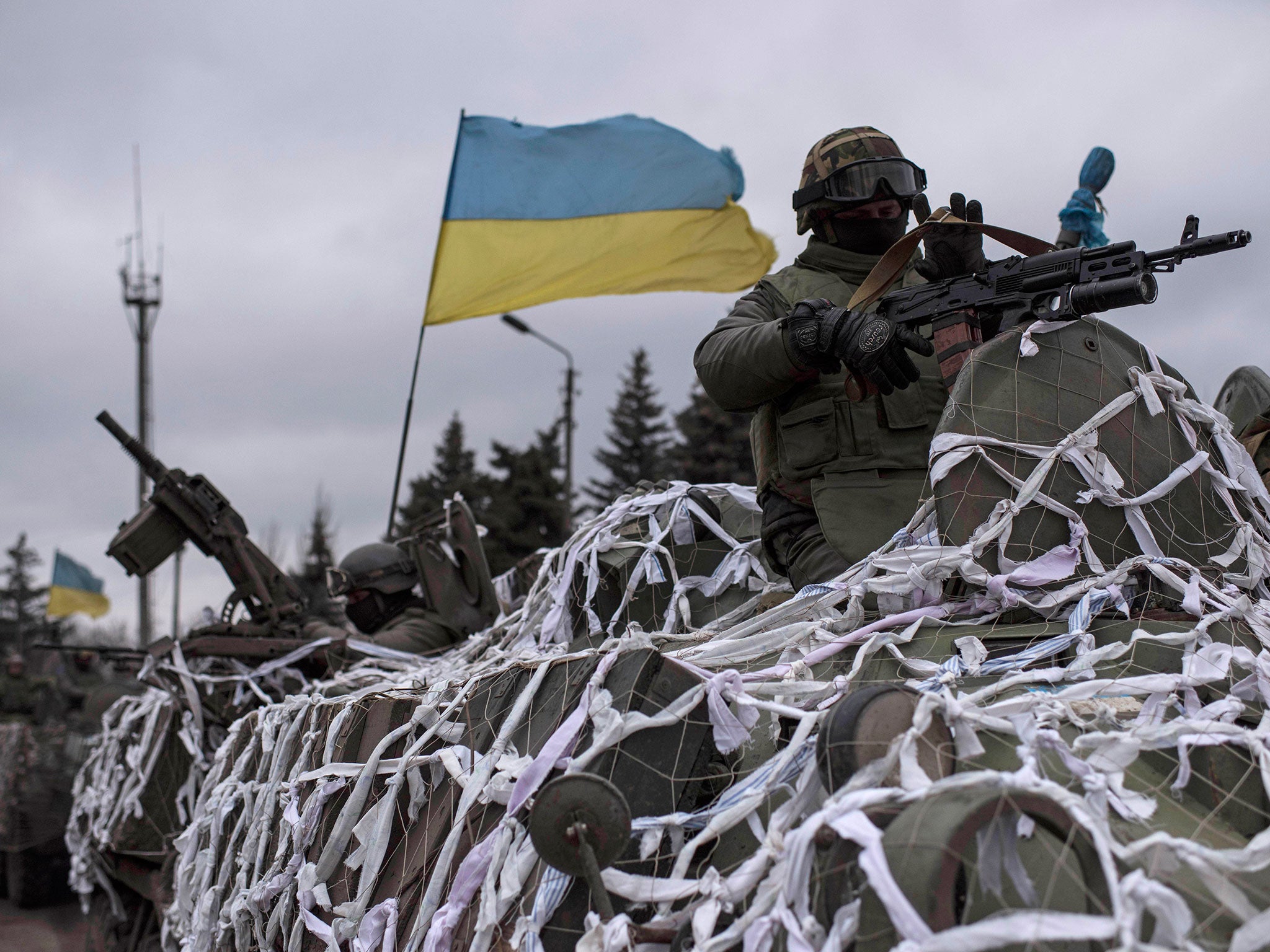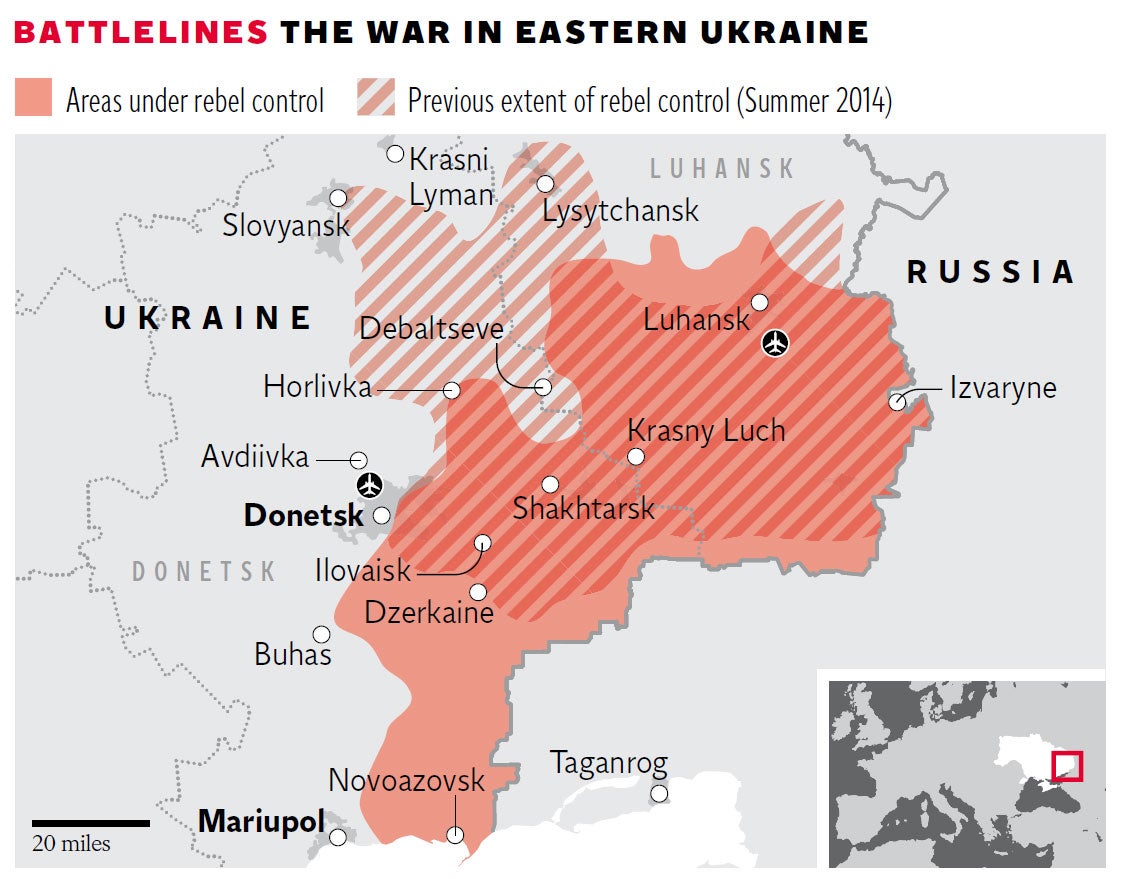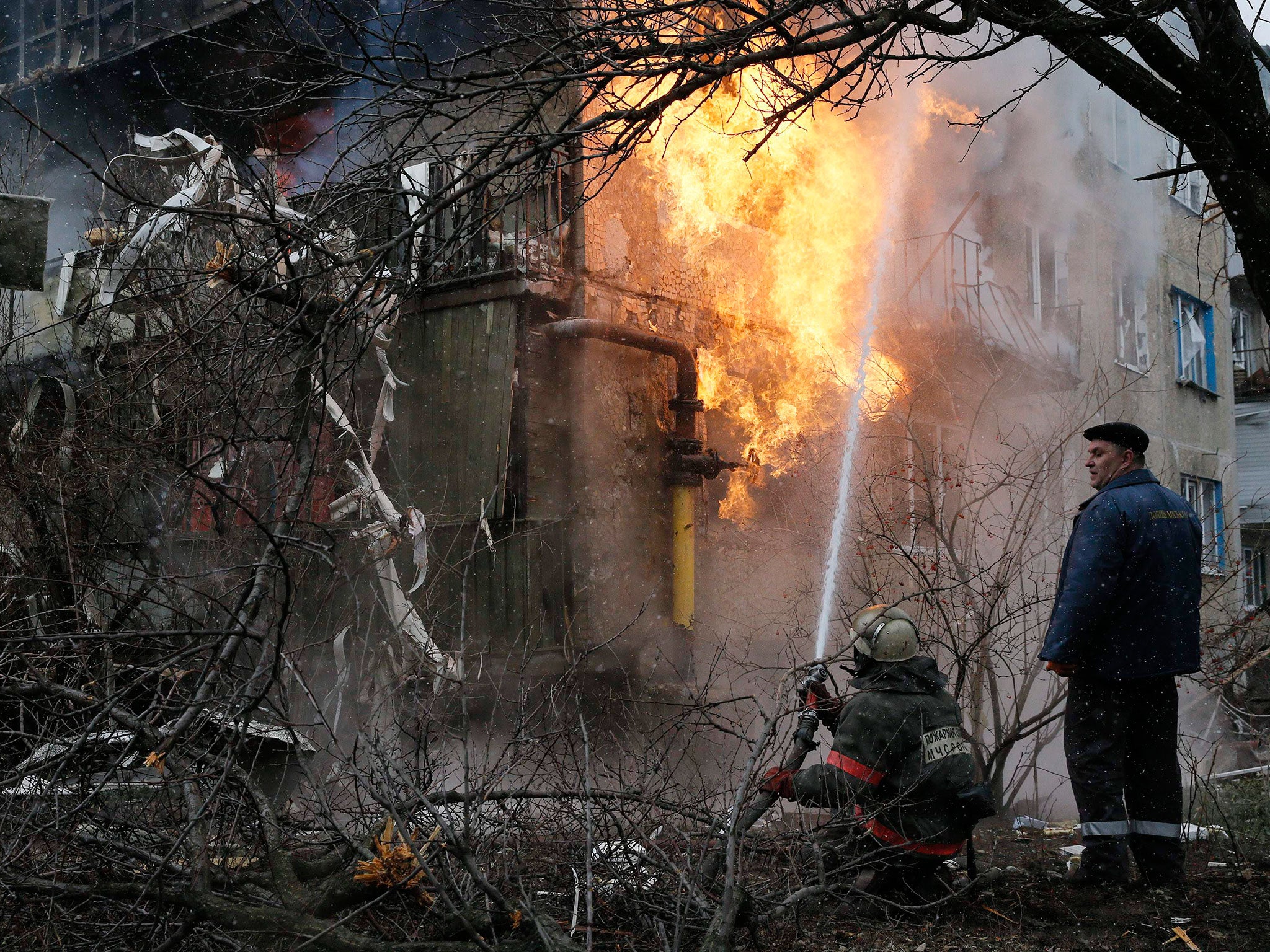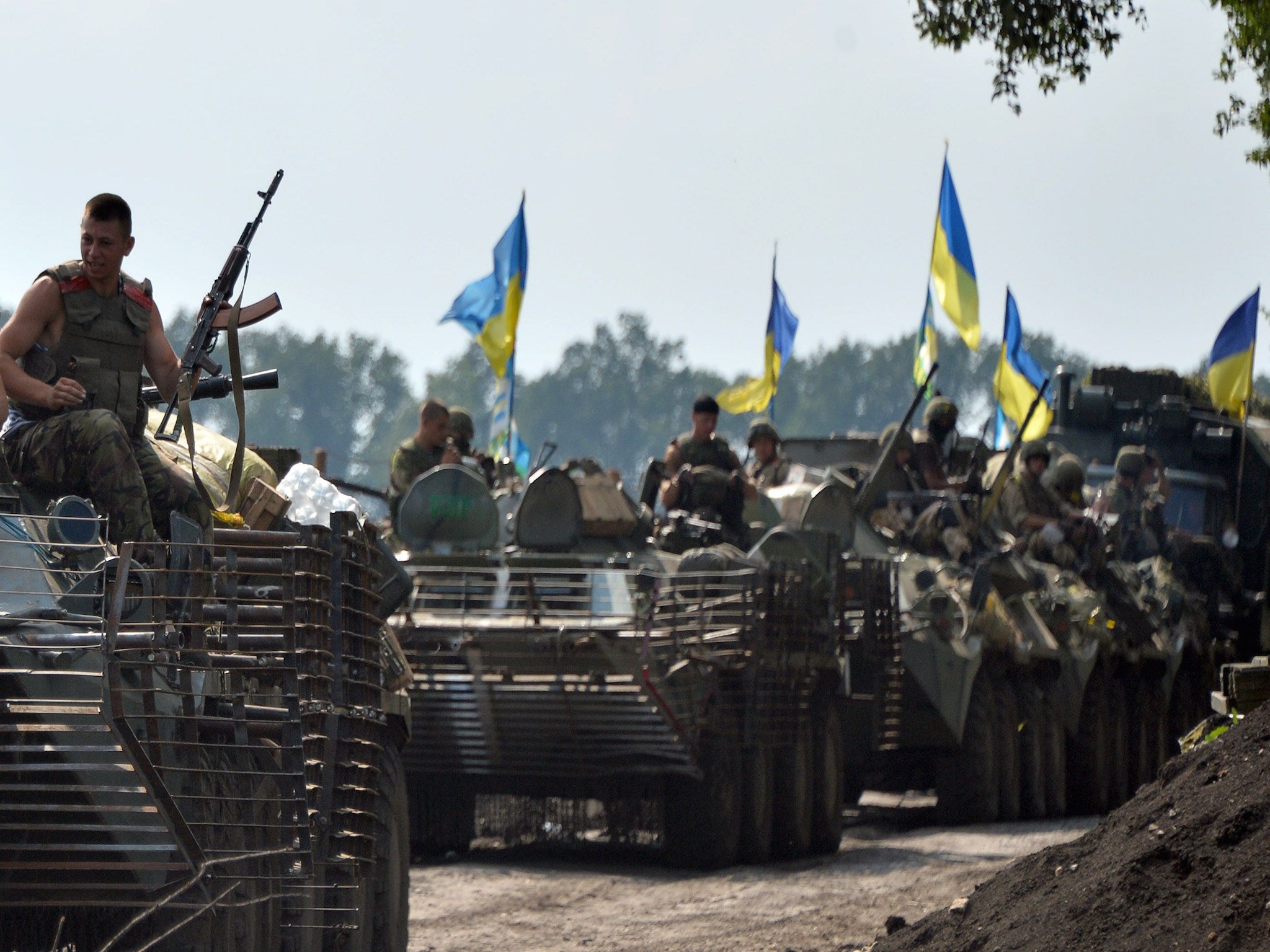'Russia's growing threat': After Ukraine, fears grow that Baltic states could be Vladimir Putin's next targets
Philip Hammond accuses Vladimir Putin of ‘acting like a 20th-century tyrant’

Your support helps us to tell the story
From reproductive rights to climate change to Big Tech, The Independent is on the ground when the story is developing. Whether it's investigating the financials of Elon Musk's pro-Trump PAC or producing our latest documentary, 'The A Word', which shines a light on the American women fighting for reproductive rights, we know how important it is to parse out the facts from the messaging.
At such a critical moment in US history, we need reporters on the ground. Your donation allows us to keep sending journalists to speak to both sides of the story.
The Independent is trusted by Americans across the entire political spectrum. And unlike many other quality news outlets, we choose not to lock Americans out of our reporting and analysis with paywalls. We believe quality journalism should be available to everyone, paid for by those who can afford it.
Your support makes all the difference.The West must stand up to Russia over Ukraine or Europe could descend into a major war for the first time since 1945, diplomats warned today as efforts to negotiate peace hung by a thread.
As the German Chancellor, Angela Merkel, prepared to brief Barack Obama in Washington on Monday about the state of the negotiations, a former US ambassador to Ukraine predicted that Estonia and the other Baltic states – all members of Nato – could be Vladimir Putin’s next targets if he is allowed to hold on to territory won by force.
Ms Merkel, who strongly opposes arming Ukraine, spent the weekend desperately trying to negotiate with Mr Putin. In a four-way phone call yesterday afternoon, the German and Russian leaders agreed with the French President, François Hollande, and his Ukrainian counterpart, Petro Poroshenko, that they would meet in the Belarusian capital, Minsk, on Wednesday.

The Estonian President, Toomas Hendrik Ilves, compared Western inaction against Russia with the appeasement of Adolf Hilter in 1938, when Nazi Germany was alllowed to seize parts of the former Czechoslovakia.
“We know from history that appeasement will never satisfy those that are being appeased,” he said. “Munich ’38 I think should be a lesson to all of us even today.”
British Foreign Secretary Philip Hammond accused Mr Putin of “acting like some mid-20th century tyrant”, while the French Foreign Minister, Jean-Yves Le Drian, said he would “fear the worst” if peace talks this week failed.
Last night, reports put the death toll from the conflict at 50,000 – 10 times previous estimates.
The US has considered sending weapons to Ukraine, but the UK, Germany and France oppose arming Kiev’s forces, saying this could lead to an escalation of the fighting.
Writing in The Independent today, Lord Ashdown, the former Liberal Democrat leader, urges the West to use “military diplomacy”, while avoiding direct conflict.

“The right reaction to the Russian arming of the Ukrainian rebels is to make it clear we are prepared to do the same for the Ukrainian government,” he writes. “Start small, slow and unaggressively – with communications and intelligence equipment for example.”
But a hardline with the Kremlin over Ukraine should be matched with efforts to build a strategic partnership with Moscow in the fight against Isis and Islamist terrorism, Lord Ashdown adds.
The worst-case scenario facing Europe was outlined today by John Herbst, former US ambassador to Ukraine, who said it was time to send military help to Ukraine.

“I think that those who argue against helping Ukraine defend itself against a much bigger and stronger aggressor do not understand the strategic stakes,” Mr Herbst said.
“[Putin’s] statements, his provocations against the Baltic states, against Kazakhstan, indicate his goals are greater than Ukraine. If we don’t stop Mr Putin in Ukraine, we may be dealing with him in Estonia. I’m not saying we will, but he has given indication that this could happen. The most important national security challenge in the world today is a rogue Kremlin and we need to stop him and Ukraine is the place to do it.”
Mr Ilves told Sky News that while he was not yet afraid of a Russian invasion, action must be taken to halt its “reckless and irresponsible behaviour throughout our region”.
The peace summit due to take place in Minsk on Wednesday was described by Mr Hammond as “one of the last opportunities that Russia will have to avoid further significant damage to its economy” if the world is forced to increase its sanctions against the Kremlin.
He said any peace deal would have to include a Russian withdrawal from Crimea, which it annexed from Ukraine following a disputed referendum.

“Don’t make it sound like that is an outrageous thing for us to demand,” Mr Hammond said. “This man has sent troops across an international border and occupied another country’s territory acting like some mid-20th century tyrant.
“We do not see any reason to tolerate this kind of outrageous and outdated behaviour from the Kremlin.”
Mr Putin, Ukrainian President Petro Poroshenko, German Chancellor Angela Merkel and French President François Hollande are all due to take part in the Minsk summit. However, Mr Putin, who has repeatedly talked peace while his forces carry out attacks on the ground, suggested that the negotiations might not actually happen. “We will be aiming for Wednesday, if by that time we are able to agree on a number of the positions that we recently have been discussing intensely,” he said.
The mixed messages from Moscow continued with Foreign Minister Sergey Lavrov saying Russia expected “important decisions” would be made at the meeting.

Ms Merkel is expected to brief US President Barack Obama on the state of negotiations during a previously scheduled trip to Washington today.
Dismissing talk of a transatlantic rift, US Secretary of State John Kerry said today that America and its European allies were “united in our diplomacy” on Ukraine. “There is no division, there is no split,” he said.
US Senator John McCain, said “defensive arms” should be sent to the Kiev government as a matter of urgency. “The Ukrainians are being slaughtered and we’re sending them blankets and meals. Blankets don’t do well against Russian tanks,” he said.
Germany’s Frankfurter Allgemeine Sonntagszeitung newspaper reported today that German intelligence estimated up to 50,000 soldiers and civilians had been killed during the conflict, nearly 10 times higher than Kiev’s estimate. “The official figures are clearly too low and not credible,” a source said.
Join our commenting forum
Join thought-provoking conversations, follow other Independent readers and see their replies
Comments